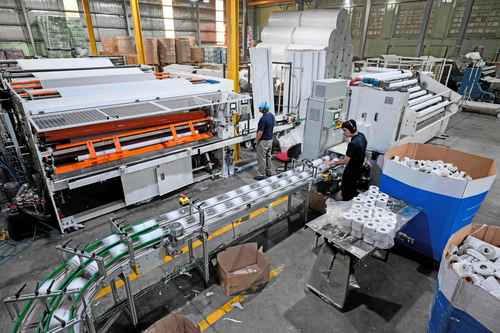:quality(75)/cloudfront-us-east-1.images.arcpublishing.com/elcomercio/UL2VPXWW6JFDRIUDNDKZG2UWWY.jpg)
A study published on Wednesday has revealed that the melting of ice in Greenland and Antarctica is causing the Earth’s rotation speed to change at a faster rate than previously thought. This will affect the calculation of Universal Coordinated Time (UCT), which is used by computer networks to adjust time around the world. UCT was established in 1967 using ultra-sensitive atomic clocks to ensure accuracy in digital and communication systems.
Historically, there has been synchronization between UCT and astronomical time based on Earth’s rotation speed, which is not constant. To compensate for these irregularities, leap seconds were introduced in 1972, ensuring that atomic time aligns with astronomical time. The last leap second adjustment was made in 2016.
As the Earth’s rotation speed changes, it causes an inverse problem where astronomical time advances ahead of atomic time. This may require the introduction of a negative leap second, which could pose unprecedented challenges in an increasingly connected world. Metrology specialists are concerned about the impact of a negative leap second due to its potential complications.
The global community of metrologists agreed to stop introducing leap seconds until 2035, and from that year, there may be a transition to letting the difference between atomic time and Earth’s rotation reach one minute. However, global warming, which accelerates ice melting in Greenland and Antarctica, poses a challenge to this plan.
The study found that the melting of ice slows down the Earth’s rotation by approximately two parts in 10^18 per century, making it harder to predict when a negative leap second might be necessary. This unprecedented impact on the Earth’s rotation calls for careful consideration by metrologists to determine the best approach for eliminating the leap second while ensuring accuracy in digital and communication systems.
In conclusion, this new information provides more time for decision-making regarding future time measurement systems as we navigate through these uncharted waters brought upon us by global warming and its effects on our planet’s rotation speed.

:quality(75)/cloudfront-us-east-1.images.arcpublishing.com/elcomercio/O44BT4R7XZE3ZAIBI2THCFLUXI.jpeg)




